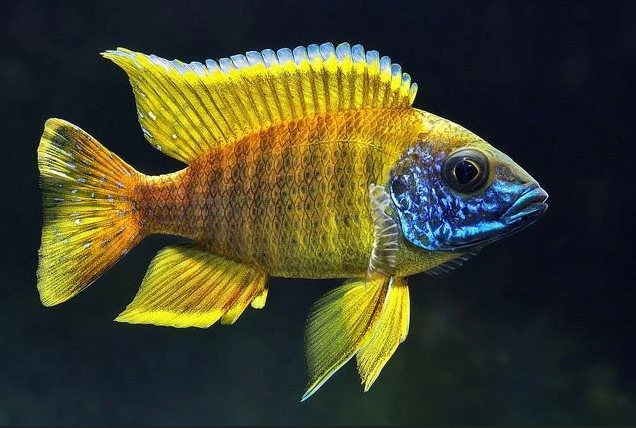Source
There are 2 main lakes in Africa that harbor these cichlids – Lake Malawi and Lake Tanganyika.
These two lakes contain more than 1,500 known varieties of fish and new discoveries are still being made. It is quite remarkable that most cichlids of the “Great Lakes of Africa” are endemic to their own lake (ie, they are not found anywhere else in the world).
Water quality
African cichlids like their waters to be clear and clean, so having a good filtration system is an essential factor.
The general water conditions are as follows:
pH: 7.6 – 8.0
GH: 300 – 400 ppm
Temp: 25° – 27° (for playback, slightly higher 28°)
Food
When feeding African cichlids you should be aware that their diet must be varied. For example, Tropheus cichlids and Goby cichlids are mainly vegetarian and accept foods like spirulina flakes well. Most cichlids will also feed on frozen brine shrimp and dehydrated shrimp. Nutravit’s food line includes spirulina feed, dehydrated shrimp and specific feed for African cichlids.
African cichlids are known to contract a disease called ‘Malawi Swell’ which can be prevented by feeding the fish the correct food and making sure the feed is of good quality and within the shelf life.
Color and varieties
There are many different types of African lake cichlids. As mentioned earlier, there are over 1500 species of this fish.
Some of the most popular among aquarium owners are: Peacock Cichlids, Electric Yellow Cichlids, Tropheus Cichlids, Princess Cichlids and Zebra Cichlids.
Reproduction
African cichlids are divided into two categories of breeding type, they are mouth breeders and substrate breeders.
In mouth breeders the females will hold the eggs and chicks in their mouth until they are ready to be released (with some exceptions where the male plays this role).
Substrate breeders lay eggs in rocks, in caves or in a depression in the sand and both parents protect the eggs and the young.
Adult African cichlids will be very protective of their babies and will fight to keep them safe.
General information
Like other aquarium fish, African cichlids are dependent on their environment for their well-being. Providing good quality water, correct nutrition and a compatible environment are the items that will keep these beautiful fish healthy in the aquarium.
